 Generation Rx is accepting proposals for Ohio State University Extension-led teams to develop and implement a youth-targeted opioid education initiative in their home communities during November 2017 to March 2018.. The teams, comprising pharmacists, community coalitions, educators (teachers, administrators, and students), and/or other partners, will use the Generation Rx resources to conduct medication/opioid safety teaching to K-12 students statewide. We anticipate that most educational activities will occur in schools, but after-school programs (including 4H and boys/girls clubs) are also an appropriate venue for this work. Small-grant dollars (up to $2,500 total) will be available to assist with the proposed programming. Additionally, other resources will be available to support the project, including the effort of >400 Kroger pharmacists trained in the Generation Rx materials as well as technical assistance with program implementation and evaluation.
Generation Rx is accepting proposals for Ohio State University Extension-led teams to develop and implement a youth-targeted opioid education initiative in their home communities during November 2017 to March 2018.. The teams, comprising pharmacists, community coalitions, educators (teachers, administrators, and students), and/or other partners, will use the Generation Rx resources to conduct medication/opioid safety teaching to K-12 students statewide. We anticipate that most educational activities will occur in schools, but after-school programs (including 4H and boys/girls clubs) are also an appropriate venue for this work. Small-grant dollars (up to $2,500 total) will be available to assist with the proposed programming. Additionally, other resources will be available to support the project, including the effort of >400 Kroger pharmacists trained in the Generation Rx materials as well as technical assistance with program implementation and evaluation.
Who: Ohio State University Extension-led teams
What: Mini Grants of up to $2,500 to implement medication/opioid safety programs for K-12 students using Generation Rx Resources
When: Deadline to apply is Monday, August 14, 2017. Please note, finalists will be required to attend training on Friday, October 6, 2017 in Columbus, OH.
Download the Complete RFP Information
Download the 2017 Mini Grant Application
Timeline
June 30, 2017 RFP released
August 14, 2017 Pre-proposal due to kwiek.1@osu.edu
August 31, 2017 First round decisions released
October 6, 2017 Team representative(s) must attend training symposium at COSI
October 15, 2017 Final project proposal due to kwiek.1@osu.edu
October 30, 2017 Final round decisions released; funds disbursed
November 1, 2017 Project start date
March 15, 2018 Project end date
April 10, 2018 Final project report due; professional development funds released
Frequently Asked Questions
Can someone other than an Extension Educator lead the project?
An Ohio State University Extension Educator must lead the effort, but the team can comprise any number of community partners from a variety of sectors.
What are acceptable expenses?
We anticipate that teams will use the grant funds for expenses related (but not limited) to programmatic support, printing, travel, and meeting space (including food). Funds cannot be used towards capital improvements, including computer purchases. Up to $500 can be allocated to the lead Extension Educator’s professional development funds (to be disbursed at the project’s conclusion).
How do I apply?
The lead Extension Educator should complete the Pre-Proposal template (file attached) no later than August 14, 2017. Any questions related to your application and its development can be directed to Nicole Kwiek (kwiek.1@osu.edu).
Must I collect data in this project?
Yes, we expect each team to evaluate the project’s impact. However, we will help each team to develop its evaluation plan during the October training symposium.
Must I use the Generation Rx resources?
We strongly encourage you to incorporate the Generation Rx resources (available at www.generationrx.org) in your project.
How can I increase my team’s likelihood of receiving funding?
Though any youth-targeted educational approaches are welcome, we are particularly interested in sustainable (i.e., train-the-trainer) proposals that will facilitate medication/opioid education beyond the grant period. We suggest partnership with a community-based drug prevention coalition and/or a school district that can ensure activities continue in the foreseeable future.
Will there be a final report?
Yes, each team will be required to submit project data in a short (<2 page) report no later than April 10, 2018. Once submitted, any budgeted professional development funds will be disbursed.

